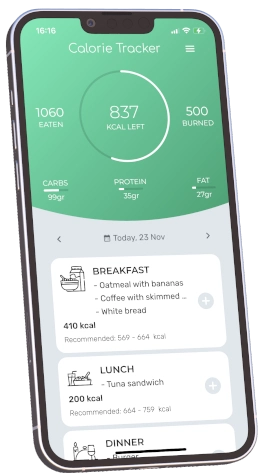—

A video version of this article is available:
The diabetic drug semaglutide is becoming very popular.
It comes under brand names such as Ozempic, Wegowy, and Rybelsus.
Doctors prescribe it to patients to help them lose weight.
Many happy stories make this drug look like a harmless vitamin.
But many overlook what hides behind these optimistic views on this drug.
And later experience side effects themselves at full strength.
In this article, we will go over common semaglutide side effects.
Starting from the mildest to the most severe cases.
Ozempic most common side-effects
Further in the article, we discuss the most common complaints reported by semaglutide users.

1. Nausea and Flatulence
According to an extensive study, patients’ most frequent reports are digestive issues including:
- nausea occurs up to 20%, or in other words, for 1 in 5 semaglutide users,
- diarrhea is 13% likely to happen,
- constipation has up to 7% risk,
- and vomiting has up to 6% risk.
Ozempic can sometimes lead to bloating and burping.
It can also trigger heartburn in some people.
In other words acid reflux. Which in turn causes burping which is a famous side effect among the users.
It can cause indigestion and other digestive side effects.
2. Dizziness
Some people might feel dizzy when taking Ozempic, though it’s not a usual side effect.
Dizziness could also be a sign of low blood sugar.
It’s like a piano missing a few keys; when the brain doesn’t get enough glucose, it can’t play the right tune, leaving you feeling off-balance and dizzy.
It is a serious issue that needs quick attention to prevent serious health problems.
3. Pancreatitis
Sometimes, Ozempic can cause pancreatitis, which is when the pancreas gets inflamed.
This inflammation can be short-term or long-term.
The pancreas is a gland that helps with digestion and energy use by making enzymes and insulin.
The inflammation can damage the pancreas.
Acute pancreatitis usually goes away with treatment.
However chronic pancreatitis can develop if the damage continues over time.
4. Allergic Reaction
Like most medications, Ozempic can cause allergic reactions in some people.
Mild symptoms might include a rash, itchiness, or flushing.
Rarely, severe allergic reactions can happen.
These can lead to swelling under the skin or in the mouth, tongue, or throat, which can make it hard to breathe.
5. Thyroid Cancer Risk
Ozempic carries a boxed warning about the potential risk of thyroid cancer.
In animal studies, the researchers found it to cause thyroid cancer.
Although it’s not clear if this risk extends to humans.
The newest study conducted by Swedish scientists says that Ozempic usage is not linked to significant increase in thyroid cancer risk. However, nevertheless the risk is not significant, it is still present, which means that it’s up to the user to decide whether to take this risk..
This means that current Ozempic users are the ones who are bearing these risks right now.
Feedbacks on Ozempic from real users
Many Ozempic users state that taking semaglutide can make you feel pretty awful.
It slows down your stomach emptying, so you end up feeling full all the time.
This lasting feeling of fullness can make enjoying food difficult. Because it often feels like the food sits in your stomach forever. Which causes nausea and discomfort.
Even though you might lose weight because of this, it often feels more like starvation.
Plus, working out becomes a chore. The feeling of constant nausea and fullness leads to muscle loss instead of only fat loss.
Unless you’re very inactive, using Ozempic to lose weight isn’t healthy.
Healthy alternative to taking Ozempic
All these side effects are possible to avoid by obtaining a key to healthy living.
The natural and effective method is available to you right now.
Go through our quiz and get your personalized weight loss plan the same day.
Frequently Asked Questions about Semiglutides and Ozempic
What are semiglutides?
Semiglutides are a type of medication known as GLP-1 receptor agonists, used primarily to manage type 2 diabetes by regulating blood sugar levels. They mimic the incretin hormone, which stimulates insulin production in response to meals.
What is Ozempic?
Ozempic is a brand name for the semaglutide medication used to treat type 2 diabetes. It helps control blood sugar levels and is also effective in promoting weight loss in individuals with obesity or overweight.
How does Ozempic work?
Ozempic works by mimicking the GLP-1 hormone, which increases insulin secretion, decreases glucagon levels, and slows gastric emptying. This helps lower blood sugar levels after eating and reduces appetite.
How is Ozempic administered?
Ozempic is administered via a once-weekly injection using a pre-filled pen. The injection is typically given in the abdomen, thigh, or upper arm.
Who should not use Ozempic?
Ozempic is not recommended for individuals with a personal or family history of medullary thyroid carcinoma (MTC) or multiple endocrine neoplasia syndrome type 2 (MEN 2). It is also not suitable for those with a known hypersensitivity to semaglutide or any of its components.
Can Ozempic be used for weight loss?
Yes, Ozempic has been found to be effective for weight loss. It is often prescribed off-label for weight management in individuals with obesity or overweight, even if they do not have diabetes.
How long does it take for Ozempic to start working?
Patients may start to see improvements in blood sugar levels within the first week of starting Ozempic. Significant weight loss results can typically be observed after several weeks to a few months of consistent use.
Can Ozempic be used with other diabetes medications?
Ozempic can be used in combination with other diabetes medications, such as metformin, sulfonylureas, or insulin. However, it is important to consult a healthcare provider to tailor the treatment plan to individual needs and avoid potential interactions.
Is Ozempic safe for long-term use?
Ozempic has been studied for long-term use and is generally considered safe when used as prescribed. However, regular monitoring by a healthcare provider is recommended to manage any potential risks or side effects.
What should I do if I miss a dose of Ozempic?
If you miss a dose of Ozempic, take it as soon as you remember, provided the next scheduled dose is at least 5 days away. If less than 5 days remain until the next dose, skip the missed dose and continue with the regular schedule.
How should Ozempic be stored?
Ozempic should be stored in the refrigerator between 36°F to 46°F (2°C to 8°C). It can be kept at room temperature (up to 86°F or 30°C) for up to 56 days once in use. Avoid freezing Ozempic and keep it away from direct heat and light.
![Ozempic Side-Effects [5 Potential Dangers of Ozempic] + video logo](/img/logo.webp)
